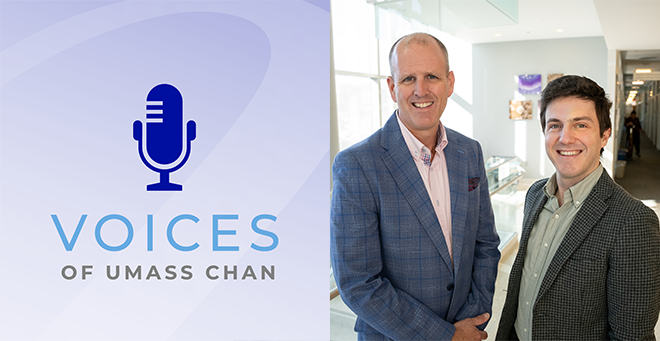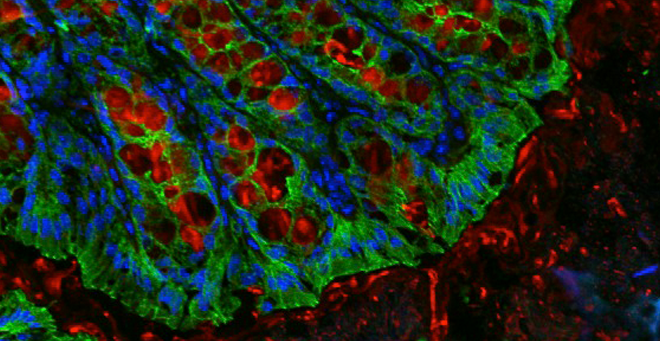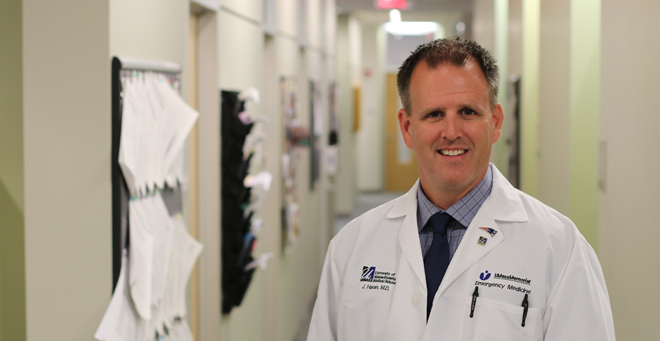The way to a person’s health may be through their stomach, to paraphrase an old saying. Or at least it may lie in the multitude of micro-organisms that inhabit the intestine, an ecosystem known as the gut microbiome, according to UMass Chan Medical School researchers.
Beth A. McCormick, PhD, the Worcester Foundation for Biomedical Research Chair II, chair and professor of microbiology & physiological systems, and director of the Center for Microbiome Research and the Program in Microbiome Dynamics, studies the connection between the gut microbiome and illnesses such as Alzheimer’s and inflammatory bowel disease as well as the immune system. She explained what we know about the gut microbiome and how scientists are investigating the mechanisms by which it affects our health.
What is the gut microbiome?
“You have microbes that colonize the intestine, and the communities that they live in are the microbiota,” Dr. McCormick said. “What they do in terms of their metabolic functions, their genetic output, how they protect us and have physiologic and structural functions, is what is referred to as the microbiome.”
How we live plays a role in what microbes live in our gut, McCormick explained. Babies are basically germ-free until they are born. Even the manner of birth—whether vaginally or by cesarean section—and whether babies are breast- or bottle fed, will leave different microbiota signatures. People become fully colonized with their microbiomes by the age of around 2, and as they age, the composition of micro-organisms also changes. Even the composition of micro-organisms between us is different.
Microbiome research at UMass Chan
Faculty within the Center for Microbiome Research at UMass Chan take a holistic approach to studying this internal environment’s effects on health by integrating experimental, computational and clinical approaches. Artificial intelligence is also employed for predictive modeling.
“The mission of the center is really to tackle the grand challenges of what is our microbiome?” McCormick said. “We barely have a basic understanding of what its functions are during homeostasis, how the microbes live in us through our current health. When it loses balance, it goes into a state called ‘dysbiosis.’ So, how does dysbiosis happen and then how does that turn back into a healthy state?”
According to McCormick, being chronically in dysbiosis can lead to a host of health problems including Crohn’s disease, autoimmune disease and cardiac issues, and through a neurotransmitter connection known as the gut–brain axis, cognitive and neurodegenerative problems.
The gut–Alzheimer’s connection
UMass Chan researchers are in the middle of a large National Institute on Aging-supported study to explore the causal mechanism of how the gut microbiome influences cognitive functioning among older adults living with Alzheimer’s disease.
Investigators are following over two to three years the cognitive functioning and gut microbiome characteristics among older adults with or without Alzheimer’s in a variety of settings. Some patients’ cognitive function will rapidly decline during that time and others will progress more slowly.
“We’re hoping that by taking a longitudinal look over the timeline of these patients, that we get to put all of these previously unconnected factors together in a way that we can determine the causal effect, and hopefully learn from there how to intervene and restore health,” said McCormick.
The principal investigator on the Alzheimer’s study is John P. Haran, MD’07, PhD’18, professor of emergency medicine and microbiology & physiological systems and clinical director of the UMass Center for Microbiome Research.
Other researchers at UMass Chan are investigating how modulating the microbiome through food can influence Crohn’s disease; how microbial communities influence infectious diseases including COVID-19; and using the gut microbiome to counteract the effects of radiation exposure, among other topics.
Can we change our gut microbiome?
McCormick said that although sales are huge of probiotic supplements, which contain live bacteria good for the gut, they may not change our microbiome the way we think.
“Remember, we have 100 trillion organisms existing in our GI tract, and one of their important functions is to keep out invaders,” she said. “So, when you take a probiotic supplement or eat yogurt with live bacteria or fermented food, just by the natural function of the gut physiology, the existing microbiota are going to try to push that probiotic out. So, you have to continually take these probiotics on a daily basis to keep the presence of these organisms in the GI tract.”
McCormick said researchers are trying to identify new probiotics that already exist in the intestine and leverage them in ways that haven’t been discovered yet.
Science for Living stories feature the perspectives of UMass Chan Medical School experts on the research behind health news headlines. If you have ideas for topics you’d like to see explored, reach out to susan.spencer1@umassmed.edu.



